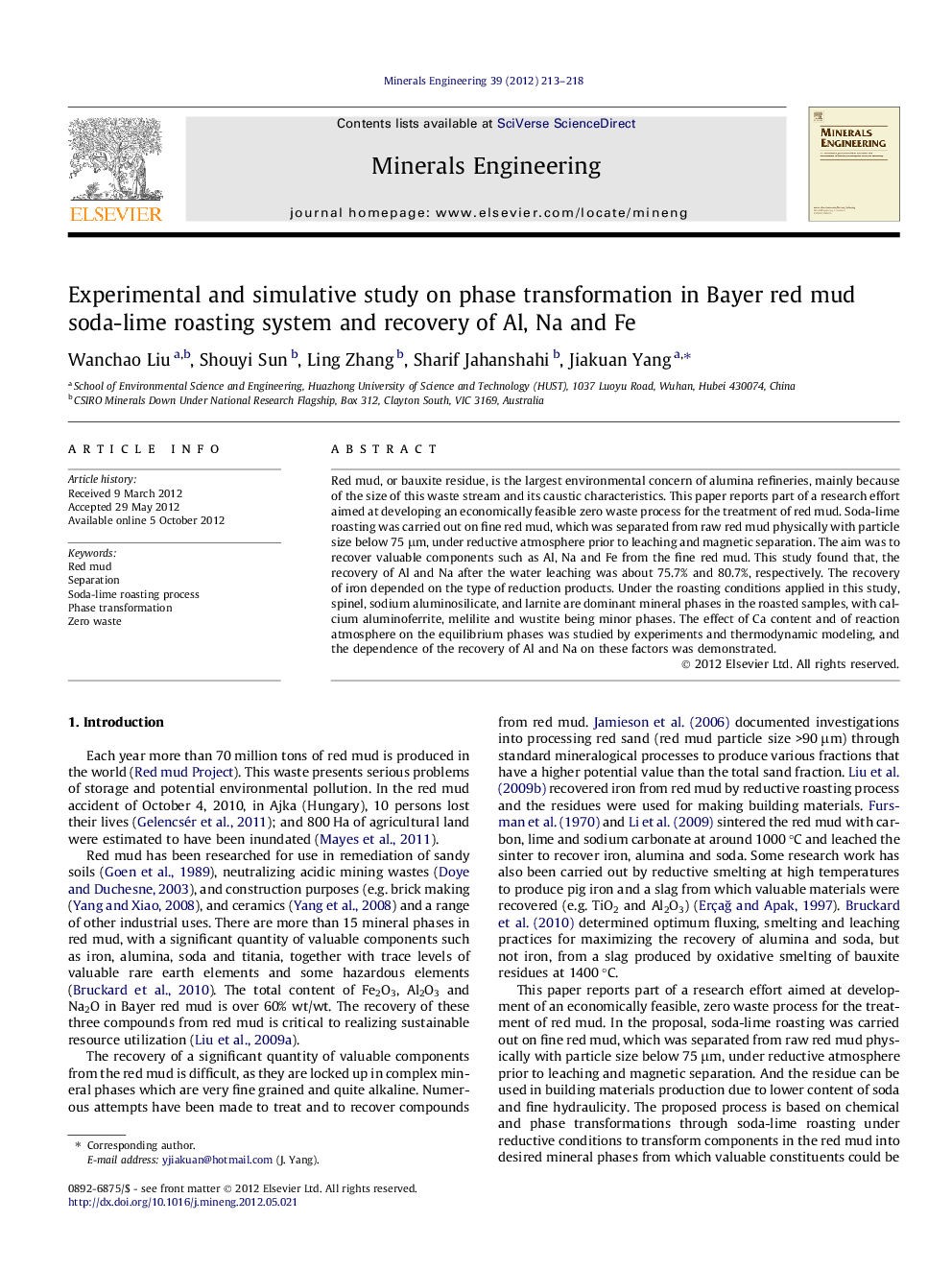| Article ID | Journal | Published Year | Pages | File Type |
|---|---|---|---|---|
| 233599 | Minerals Engineering | 2012 | 6 Pages |
Red mud, or bauxite residue, is the largest environmental concern of alumina refineries, mainly because of the size of this waste stream and its caustic characteristics. This paper reports part of a research effort aimed at developing an economically feasible zero waste process for the treatment of red mud. Soda-lime roasting was carried out on fine red mud, which was separated from raw red mud physically with particle size below 75 μm, under reductive atmosphere prior to leaching and magnetic separation. The aim was to recover valuable components such as Al, Na and Fe from the fine red mud. This study found that, the recovery of Al and Na after the water leaching was about 75.7% and 80.7%, respectively. The recovery of iron depended on the type of reduction products. Under the roasting conditions applied in this study, spinel, sodium aluminosilicate, and larnite are dominant mineral phases in the roasted samples, with calcium aluminoferrite, melilite and wustite being minor phases. The effect of Ca content and of reaction atmosphere on the equilibrium phases was studied by experiments and thermodynamic modeling, and the dependence of the recovery of Al and Na on these factors was demonstrated.
► Al and Na are recoverable from red mud with reductive soda-lime roasting. ► The reaction system was simulated with the thermodynamic software MPE. ► The addition of CaO reduces Si content of sodium aluminosilicate phase. ► The reaction atmosphere can affect the availability of Ca in the system.
